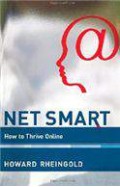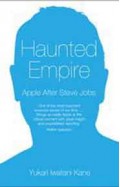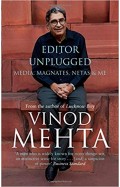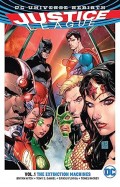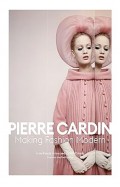- Home
- Books
- Sale
- Online Book Bazar Up To 60%
- 10% OFF
- The Architecture of EMPAC: The Tangible and the Tantalizing
The Architecture of EMPAC: The Tangible and the Tantalizing
By: Mark Mistur
-
Rs 3,310.75
- Rs 3,895.00
- 15%
You save Rs 584.25.
Due to constant currency fluctuation, prices are subject to change with or without notice.
EMPAC is a building like no other. The Curtis R. Priem Experimental Media and Performing Center (EMPAC) is an extraordinary instrument for artists and researchers alike. With its concert hall, a theater and experimental black box studios, EMPAC bridges the ever expanding potential of digital technology with the most refined details for acoustics, visual production and performing arts. EMPAC is designed, without compromise, for technology and the human experience, ranging from performances and new productions in time-based arts to the creation and navigation of large-scale immersive environments by researchers and engineers. On the campus of the oldest technological university in the U.S., the vision of EMPAC synthesizes a grand architectural gesture with the complex requirements of a true interdisciplinary enterprise for the 21st century.
Dr. Shirley Ann Jackson's foreword describes a vision for a 21st-century research university and EMPAC as one instrument to enhance the culture of a polytechnic institute and to provoke innovation. An essay from EMPAC director Johannes Goebel focuses on the human dimension and the senses and the frontier of time-based arts. Essays by Sir Nicholas Grimshaw, acoustician R. Lawrence Kirkegaard, theatre design consultant Joshua Dachs and Grimshaw Architects partner involved in the project from beginning to end William Horgan, each examine the question of performance-based design integration and tell the stories of innovations that resulted from their various important points of view. The building and the book do more than promise results. Being in operation for two years at the conclusion of writing the Architecture of EMPAC, the book concludes with appendix complete with the events it has been home to, the artists who have been in residence and the new productions to date, with the opening concert, excerpts from the opening festival, a building light installation, plus a time-lapsed movie of the construction included in a DVD.
EMPAC is a building like no other. The Curtis R. Priem Experimental Media and Performing Center (EMPAC) is an extraordinary instrument for artists and researchers alike. With its concert hall, a theater and experimental black box studios, EMPAC bridges the ever expanding potential of digital technology with the most refined details for acoustics, visual production and performing arts. EMPAC is designed, without compromise, for technology and the human experience, ranging from performances and new productions in time-based arts to the creation and navigation of large-scale immersive environments by researchers and engineers. On the campus of the oldest technological university in the U.S., the vision of EMPAC synthesizes a grand architectural gesture with the complex requirements of a true interdisciplinary enterprise for the 21st century.
Dr. Shirley Ann Jackson's foreword describes a vision for a 21st-century research university and EMPAC as one instrument to enhance the culture of a polytechnic institute and to provoke innovation. An essay from EMPAC director Johannes Goebel focuses on the human dimension and the senses and the frontier of time-based arts. Essays by Sir Nicholas Grimshaw, acoustician R. Lawrence Kirkegaard, theatre design consultant Joshua Dachs and Grimshaw Architects partner involved in the project from beginning to end William Horgan, each examine the question of performance-based design integration and tell the stories of innovations that resulted from their various important points of view. The building and the book do more than promise results. Being in operation for two years at the conclusion of writing the Architecture of EMPAC, the book concludes with appendix complete with the events it has been home to, the artists who have been in residence and the new productions to date, with the opening concert, excerpts from the opening festival, a building light installation, plus a time-lapsed movie of the construction included in a DVD.
The Architecture of EMPAC: The Tangible and the Tantalizing
By: Mark Mistur
Rs 3,310.75 Rs 3,895.00 Ex Tax :Rs 3,310.75
Zubin Mehta: A Musical Journey (An Authorized Biography)
By: VOID - Bakhtiar K. Dadabhoy
Rs 892.50 Rs 1,050.00 Ex Tax :Rs 892.50
How To Become A Scandal: Adventures In Bad Behavior -
By: Laura Kipnis
Rs 1,100.75 Rs 1,295.00 Ex Tax :Rs 1,100.75
The Social Media Bible Tactics Tools And Strategies For Business Succe
By: Lon Safko
Rs 3,102.50 Rs 3,650.00 Ex Tax :Rs 3,102.50
The History of the World According to Facebook
By: Wylie Overstreet
Rs 1,015.75 Rs 1,195.00 Ex Tax :Rs 1,015.75
Haunted Empire: Apple After Steve Jobs
By: Yukari Iwatani Kane
Rs 712.50 Rs 950.00 Ex Tax :Rs 712.50
Groundswell Winning in the World Transformed by Technology Expanded Revis
By: Charlene Li
Rs 1,270.75 Rs 1,495.00 Ex Tax :Rs 1,270.75
Editor Unplugged: Media, Magnates, Netas and Me
By: Vinod Mehta
Rs 896.25 Rs 1,195.00 Ex Tax :Rs 896.25
No similar books from this author available at the moment.
The Brutal Telling - (a Chief Inspector Gamache Mystery Book 5)
By: Louise Penny
Rs 2,245.50 Rs 2,495.00 Ex Tax :Rs 2,245.50
Faber and Faber - The Untold Story of a Great Publishing House
By: Toby Faber
Rs 1,100.75 Rs 1,295.00 Ex Tax :Rs 1,100.75
Justice League Vol. 1: The Extinction Machines (Rebirth)
By: Bryan Hitch
Rs 2,970.75 Rs 3,495.00 Ex Tax :Rs 2,970.75
Collins International Foundation - Collins International Maths Foundation Plus Activity Book B
By: Peter Clarke
Rs 897.50 Rs 1,795.00 Ex Tax :Rs 897.50
Why America Slept - The Failure to Prevent 9/11
By: Gerald Posner
Rs 505.75 Rs 595.00 Ex Tax :Rs 505.75
Meet Me At Beachcomber Bay: The Feel-good Bestseller You Have To Read This Summer
By: Jill Mansell
Rs 675.75 Rs 795.00 Ex Tax :Rs 675.75
Legion of Super-heroes: The Great Darkness Saga
By: Paul Levitz
Rs 4,945.50 Rs 5,495.00 Ex Tax :Rs 4,945.50
Pierre Cardin - Making Fashion Modern
By: Jean-Pascal Hesse
Rs 14,395.50 Rs 15,995.00 Ex Tax :Rs 14,395.50
When America Stopped Being Great: A History of the Present
By: Nick Bryant
Rs 2,460.75 Rs 2,895.00 Ex Tax :Rs 2,460.75
Zubin Mehta: A Musical Journey (An Authorized Biography)
By: VOID - Bakhtiar K. Dadabhoy
Rs 892.50 Rs 1,050.00 Ex Tax :Rs 892.50
The Architecture of EMPAC: The Tangible and the Tantalizing
By: Mark Mistur
Rs 3,310.75 Rs 3,895.00 Ex Tax :Rs 3,310.75












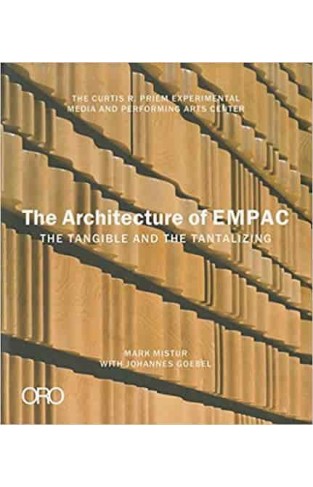
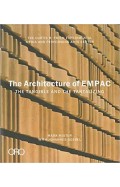
-120x187.jpg?q6)






